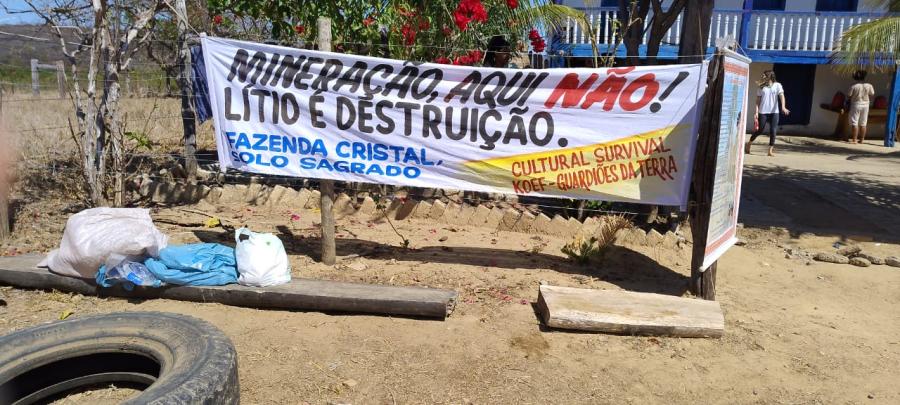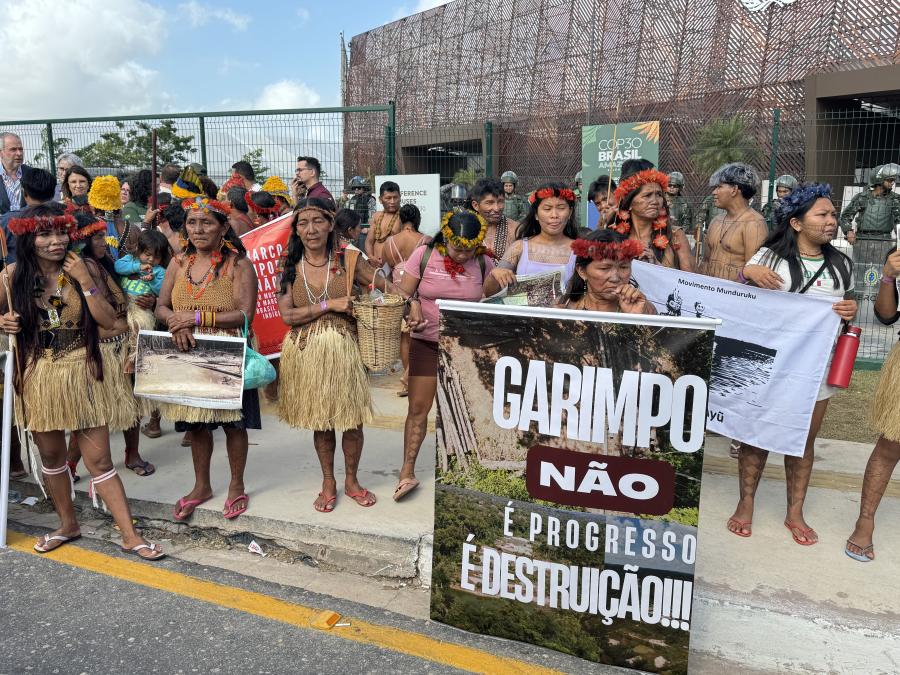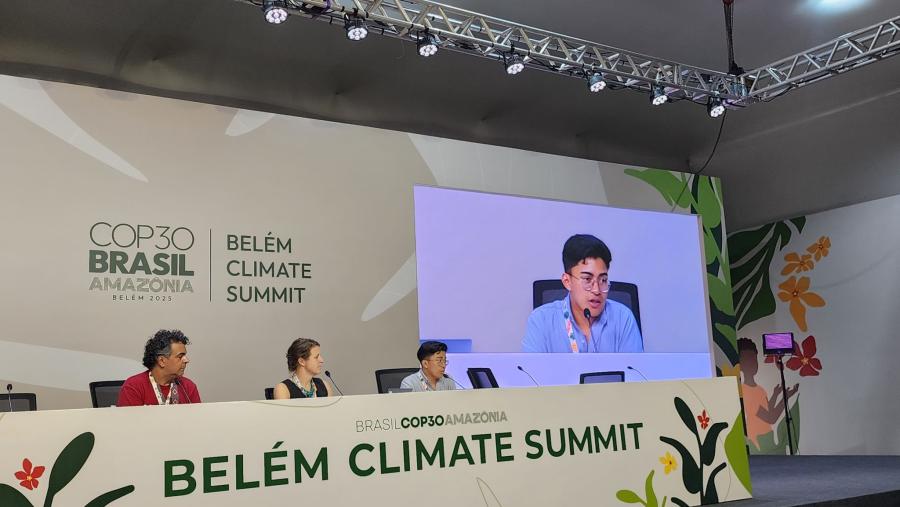
The political participation and candidacies of Indigenous leaders for office in Brazil are a new way to fight for Indigenous Peoples’ rights from the inside. The 2022 elections for president, senate, and the chamber of deputies are undoubtedly one of the most important in the history of this new democracy. For Indigenous Peoples, with a record participation of more than 180 candidates, these elections represent a political reaction to the numerous and increasing attacks against their rights, lands, and bodies during the Bolsonaro administration.
The record candidacy of Indigenous Peoples demonstrated a high level of political engagement of those once considered extinct and assimilated by the State. While the houses of senators and parliamentarians are not a friendly place for Indigenous people or environmental activists, it is necessary to understand how the government works to fight from the inside. The main battles of Indigenous Peoples during the last four years were not directly with the President but in the House of Representatives and the Senate, where Bolsonaro's baleful proposals against Indigenous Peoples and the environment were approved and promoted by parliamentarians.
The country currently has 513 deputies distributed among the 26 states and the federal district. They are elected for a four-year term, with the possibility of indefinite reelection. Senators accumulate the same functions as deputies; that is, to propose laws, approve and reject bills, and propose changes to the Constitution, among other actions. They are also responsible for overseeing the government and demanding information and clarifications when necessary, opening investigations, and conducting impeachment proceedings in extreme cases. Senators have the additional responsibility of trying the president for a crime of responsibility or approving or rejecting the President's nominations for specific important posts, such as ministers of justice, federal judges, and the presidents of administrative bodies. One of these is FUNAI, the State Indigenous agency with the constitutional responsibility of defending and promoting the rights of Indigenous Peoples.
The State's Violent and Anti-Indigenous Policy
Within this framework, the Brazilian State has systematically created, approved, and strengthened laws that attack Indigenous Peoples and the environment on behalf of large agribusiness, mining, and deforestation corporations. These laws make Indigenous lands and communities vulnerable and susceptible to criminal attacks. The empowerment of criminals in Brazil's social life is one of the most intense in recent decades.
Land invasions, mining—legal and illegal—and the expansion of cattle, soy, and other commodity farms are responsible for unprecedented, systematic, and structural violence against Indigenous Peoples, Quilombolas, and traditional communities in the country. The Catholic organization CIMI, which conducts an annual report on violence taking place in the countryside, reported these numbers for 2021:
- 305 incidents of Indigenous lands invaded by land grabbers, miners, and loggers
- 226 incidents of gunfire attacks from illegal miners, drug cartels, and loggers in 22 states
- 871 demarcation processes suspended by the president
- 1,294 cases of Indigeneous property attacked and/or destroyed via arson and vandalism
- 176 Indigenous activists murdered for defending the environment or their human rights
- 148 suicides
- 744 child deaths from forced mobilizations, water contamination, and malnutrition
- 355 cases of violence against Indigenous community members
- 5,232 deaths from COVID-19 and lack of basic healthcare
With a justice system that is slow and favors Brazil’s non-Indigenous citizens, human rights, the environment, and Indigenous Peoples face a dark and sinister future. For this reason, Indigenous struggles in Brazil have gone beyond their territories and the halls of the courts of justice. Seeking representation in parliament stands for more than simply participating in the political and social life of the country. It means infiltrating the arena of the adversaries of the forest and using the weapons of the State to propose, defend, and create laws that protect the environment and the rights of the original Peoples.
In a Dark Scenario, More Warriors Are Needed
In the 2022 elections, which will have a presidential runoff in the first week of November, two trans women, Erika Hilton and Duda Salabert, were elected to the National Congress, along with several campesino and Indigenous women. Their political agendas are openly against the current sexist, misogynist, and rights-violating government.
Celia Xakriabá (Xakriabá). Photo courtesy of her social media accounts.
Although the prominent Congresswoman, first Indigenous woman lawyer, and activist Joenia Wapichana (Wapixana) did not have her mandate renewed, the fight in the national congress will have first class warriors. For example, the activist and former Executive Director of Articulação dos Povos Indígenas do Brasil (APIB), the most significant articulation of Indigenous organizations in the country, Sonia Guajajara (Guajajara), has promised vehement and arduous work on behalf of Indigenous Peoples. Célia Xakriabá (Xakriabá), who is a teacher and environmental activist, ran on a platform of defense of Indigenous territories and actions to mitigate climate change. Another is Juliana Cardoso, who identifies as Afro-Indigenous and a feminist. Also elected were Paulo Guedes and Silvia Waiãpi (Waiãpi), who declared themselves to be Indigenous but whose agendas are not known.
While they represent a bright spot for Indigenous representation in Brazil, these new parliamentarians and congresspeople will find an even more somber scenario in the Senate and Congress; agribusiness, the arms industry, mining industry, and groups linked to deforestation and extractivism elected the largest ruralist and anti-indigenous caucus in the country's history. One of them, Bolsonaro's former minister of the environment, previously proposed to use the Covid pandemic as a distraction to "drive the tractor through the forest."
“Against this peril, we can never surrender”
Against the backdrop of the destruction of the Amazon rainforest—as of now, 20 percent destroyed—exploitation and destruction of the Brazilian biomes, and large political parties that deny climate change, the fight for rights, the environment, and for the possibility of a future in the country is even more urgent. The violence against Indigenous bodies and the bodies of the forests, rivers, and several species urges these brave warriors not to fight alone. We need a historic commitment to protect and save not only the Amazon rainforest, the Cerrado, the Pantanal, the Caatinga, and the Atlantic forest, but the bodies and lives that flourish, live, and take care of themselves within them.
In the first round of voting for president, 48 percent went to former President da Silva vs. 43 percent for incumbent President Bolsonaro. The margin was astonishingly close, much closer than expected. Bolsonaro is running against the formidable opponent Lula, who is openly an ally of Indigenous Peoples. In Congress, the situation is challenging with parties and public figures displaying anti-Indigenous agendas and plans in the presidency. If Lula is elected the risks decrease, as his political agenda and allies are environmentalists and well known Indigenous leaders. However, if Brazilian society is once again seduced by the discourse of delusional progress, religious fundamentalism, and populism, we face a much more significant threat. In that case, we know that it is not only democracy that suffers a substantial loss, but all species.
In either case, Indigenous Peoples will continue to do what we have done for hundreds of years: resist, fight, and never surrender. Our situation reminds me of a line from the television series Babylon 5: “There is a greater darkness than the one we fight. It is the darkness of the soul that has lost its way. The war we fight is not against powers and principalities, it is against chaos and despair. Greater than the death of flesh is the death of hope, the death of dreams. Against this peril, we can never surrender.”
Top photo: Center at the microphone: Sonia Guajajara (Guajajara), elected to the Chamber of Deputies; on the right, Deputy Joenia Wapichan (Wapixana), who is leaving the federal chamber in December. Photo courtesy of Chamber of Deputies/Pablo Valadares.
UPDATE: Lula won the run-off elections on October 30, 2022. Read: Cultural Survival Congratulates Lula on His Win and Supports Indigenous Peoples’ Priorities for His Mandate



